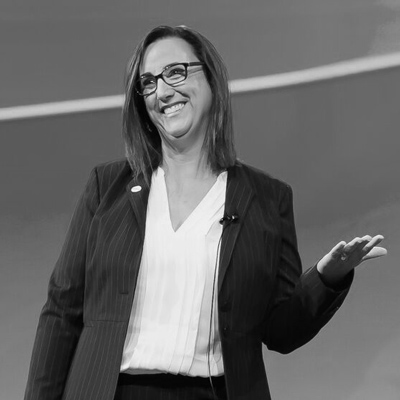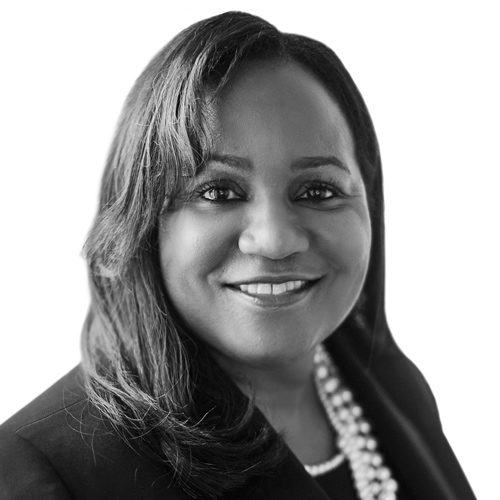Mike Woodrow, CIO of Avamere Family of Companies, was working his way through another long day at the company’s Wilsonville, Oregon, headquarters in December 2016, when something happened that changed everything. He had a heart attack.
“You don’t go through something like that without it changing many aspects of your life—both your personal life and your professional life,” Woodrow says. “It changes you in ways you can’t anticipate.”
Woodrow had always been an intense worker. You don’t get to be CIO of a leading senior living, rehabilitation, and healthcare company without a tireless work ethic. But being in the emergency room and hearing doctors tell him that he may not have survived had he arrived 30–40 minutes later gave Woodrow serious pause.
“I realized that it’s great to have that focus and desire for success,” Woodrow says. “But maybe I didn’t have to work all those hours or skip the healthy eating and exercise routine because I had meetings to attend.”
While Woodrow was still in the intensive care unit, former Avamere CEO John Morgan came to see him. So did Avamere president and now current CEO Gary Wart, as well as Larry Lopardo, executive vice president and general counsel. They made sure Woodrow fully grasped the gravity of his situation.
“They told me that my health was more important than anything I needed to be doing at work,” Woodrow says. “That’s a serious statement since the CIO is involved in everything. Me not being available affects a lot of people.”
The executives insisted they could help fill in, and while Woodrow recovered at home, he received minimal phone calls, emails, or text messages from work. “You don’t see that very often,” Woodrow says. “I can’t think of better people to be around and work with every day.”
When Woodrow returned to the office, he found himself thinking about his hospital experience often. It gave him an inside look at what the people on the front lines of the business—caretakers, physicians, and nurses—do to care for their patients. The staff who cared for him, he says, were the most selfless and dedicated professionals he’d ever seen. “Before I got there, they had no idea who I was, but for next three days, they took care of me as if I was the most important person in the world,” Woodrow says. “It’s amazing to watch what caregivers do for long hours on their feet. It inspires you to go back to work and try to improve on everything so those folks can do what they do even better: care for their patients.”
Woodrow spent roughly one month recuperating, and when he returned to Avamere, he immediately began working on a major big data project. In February 2017, Avamere and IBM launched a six-month research study of data that is currently being gathered from sensors at Avamere’s senior living facilities. Avamere is the first and only post-acute care senior living facility to work with IBM on this type of project.
The aim is to use IBM’s cognitive computing power to gain insights into physical and environmental conditions, as well as identify factors that affect thirty-day hospital readmission rates in patients. Woodrow is confident the project will yield results.
“When we first got together with IBM, I really got a sense of the amazing ability they have,” he says. “They’re tremendously intelligent, innovative people. When you can put that kind of talent with our amazing folks on the healthcare side, good things will happen.”
IBM has equipped twenty short-stay skilled nursing rooms with devices strategically placed in spots such as under beds and near doorways to measure everything from sleep quality to room temperature. Patients who have agreed to participate will also wear sensors to monitor physical conditions such as gait and heart rate.
By the time all the data is collected, analysts may need 2–3 years to discover the results that can help Avamere caretakers be even better at their work. The future, however, is in Woodrow’s sights.
“I have to be looking six and twelve and eighteen months down the road to make sure our strategy lines up with our business,” Woodrow says. “To do that, I have to have a team that can function on its own and is responsive and accountable and professional.”
Woodrow says the IT team is the most important asset any business has when it comes to technology. IT personnel must be able to implement solutions quickly and efficiently, or it doesn’t matter how good the technology is.
“Mike works closely with the PCM team,” says David Case of PCM, which markets technology products, solutions, and services. “I can say that his innovative work has prioritized critical apps and ensured that patients enjoy a first-rate healthcare experience.”
As a result, when Woodrow scouts for new talent, he is always focused on leadership qualities.
“It’s about owning your position and doing the best you can to succeed every day without having to be told what to do,” Woodrow says. “When you have that kind of team, you can start doing things other companies aren’t and help the business differentiate itself.”
Woodrow, however, concedes that finding the right people for his IT department is a challenge.
“I want to know how they think and function,” he says. “I don’t need someone who is the best in whatever technology we hire them for. If they can’t function within the team, then it won’t work. It’s really about identifying people who understand that.”
Teamwork is particularly important given the tools they use and the people they service. Networking, database management, and communication technologies evolve rapidly. So too do the needs of the healthcare community, which is in flux with uncertainty over the aftermath of the Affordable Care Act. Woodrow, on the other hand, has a way of making strategic decisions in the face of such uncertainty.
“You take your experience and knowledge and apply it to a strategy that lines up with the business and that you think makes sense at that time,” he says. “Then, you continue to adjust, understanding that just because you’re changing the strategy doesn’t mean it was wrong when you created it.”
Change is simply a part of business and a part of life. Few CIOs understand this better than Woodrow. It took a health crisis to make him see it, but his outlook at home and at work are much healthier now. Because of that, so is Avamere.
Lenovo Health congratulates Mike Woodrow for being recognized in American Healthcare Leader. Lenovo Health is a proud strategic partner of the Avamere Family of Companies and empowers healthcare organizations with our technology and solutions to improve outcomes, deliver high-quality care, and actively engage patients throughout their care journey.
Sterling is an Oregon-based Managed Services provider that specializes in leading-edge Cloud Services technology for growing businesses. Our twenty years of experience allows us to find solutions that help clients work smarter and more efficiently. Sterling is proud to partner with Avamere in streamlining their organization by taking full advantage of the latest advancements in VOIP, VDI, and SD-WAN Cloud services. Supporting a thought leader like Mike Woodrow is what we’re all about.


